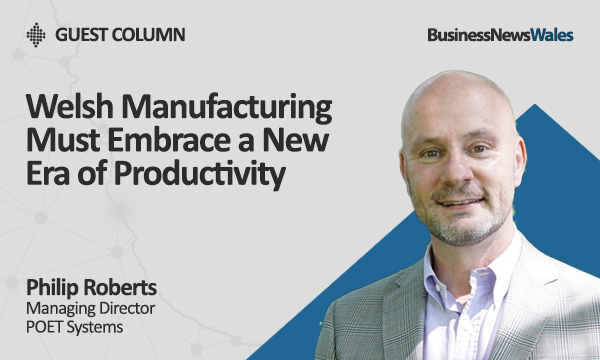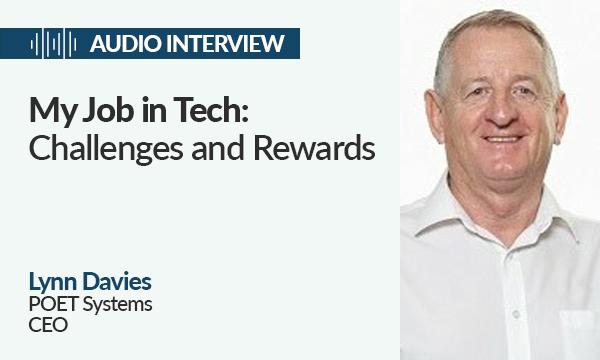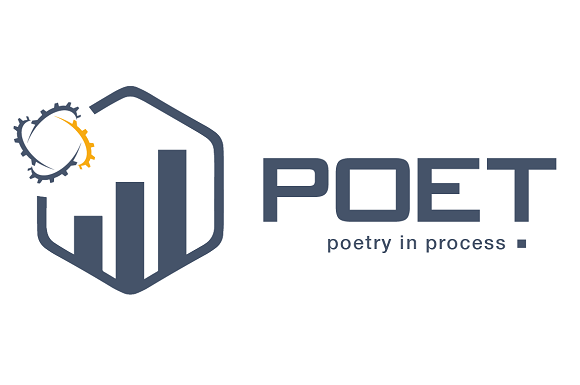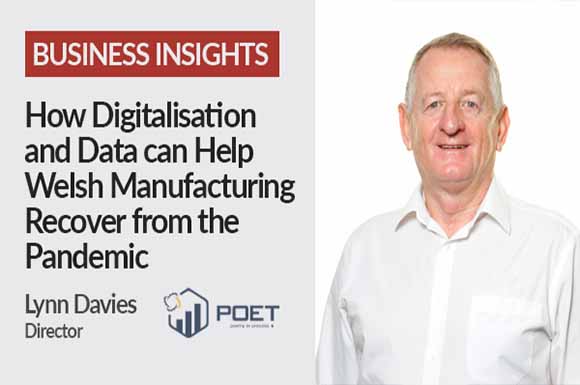
When business intelligence is mentioned in the context of manufacturing, the conversation often gravitates toward dashboards, KPIs, and digital performance charts. These tools are typically viewed through the lens of senior leadership and operations management, serving as instruments for strategic oversight and high-level decision-making.
But there is a growing understanding within the sector that true business intelligence must go deeper. It must extend beyond boardrooms and middle management, and embed itself into the very core of day-to-day operations. To do that effectively, it has to be people-first.
Across the manufacturing landscape in Wales and beyond, many businesses are experiencing a quiet but significant shift: rising employee disengagement. Whether due to a perceived lack of support from senior management, limited feedback loops, or a disconnect between effort and recognition, many frontline workers feel increasingly detached from the processes they help to run. This isn't just a cultural or HR concern. It's a productivity issue—one that often goes unnoticed in traditional performance metrics.
In many factories, frontline teams still input critical operational data, downtime events, quality issues, process delays, into systems that offer no immediate feedback. Once entered, that information disappears into spreadsheets or siloed back-office software, rarely resurfacing in a meaningful or timely way. By the time it informs a report, the moment to take corrective action has passed. And for the individuals who gathered the data, there’s little sense of visibility, ownership, or impact.
That lack of connection weakens the potential of even the most sophisticated business intelligence systems. Because when data is delayed, disconnected, or only accessible to a select few, it fails to serve the organisation as a whole.
A more modern, inclusive approach to business intelligence is emerging, one that treats data not as a tool for oversight, but as a medium for communication and collaboration across all levels of the business.
In this model, production data becomes visible immediately, not just to managers, but to the people generating it. Live screens display current performance, process health, and emerging issues in real time. Shop floor teams are no longer passive data providers, they’re participants in a dynamic feedback loop. They can see the direct impact of their work, spot patterns, and begin to understand how their contributions affect overall performance.
Crucially, this kind of transparency also allows for a more constructive understanding of underperformance. When a process begins to fail, it is no longer automatically assumed to be the result of operator error. The data helps surface other contributing factors – outdated tooling, inconsistent materials, mechanical faults – and creates a shared platform for cross-functional problem-solving. Engineering, quality, design, and operations teams are all reading from the same real-time source, and can respond more quickly, more accurately, and more collaboratively.
What’s also essential in this people-first approach is the creation of space for human input, not just numerical data. When employees are given the ability to log comments, flag support requests, or add observations alongside production data, it adds context, urgency, and direction to the numbers. A logged fault becomes a discussion. A pattern of downtime becomes a project. And productivity improvements become a shared achievement, not a top-down directive.
In traditional manufacturing environments, these kinds of insights might only emerge after-the-fact, during weekly meetings or monthly reporting cycles, if at all. And often, they’re framed without the input of the individuals closest to the issue. But in a connected, visual, and inclusive production environment, insight is immediate, collaborative, and ongoing.
This rethinking of business intelligence, placing engagement and visibility at its core, offers a powerful opportunity for manufacturing in Wales. It aligns with broader policy ambitions around digital transformation, smarter working, and inclusive innovation. And it speaks to a deeper truth that often gets overlooked: you can’t improve what people can’t see, and people won’t engage with what they don’t feel part of.
The future of productivity isn’t just about collecting more data. It’s about ensuring the right people have access to it, context for it, and a voice in how it’s used. Only then can business intelligence live up to its name.







